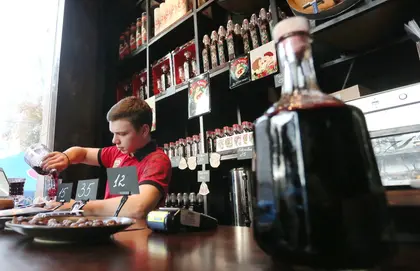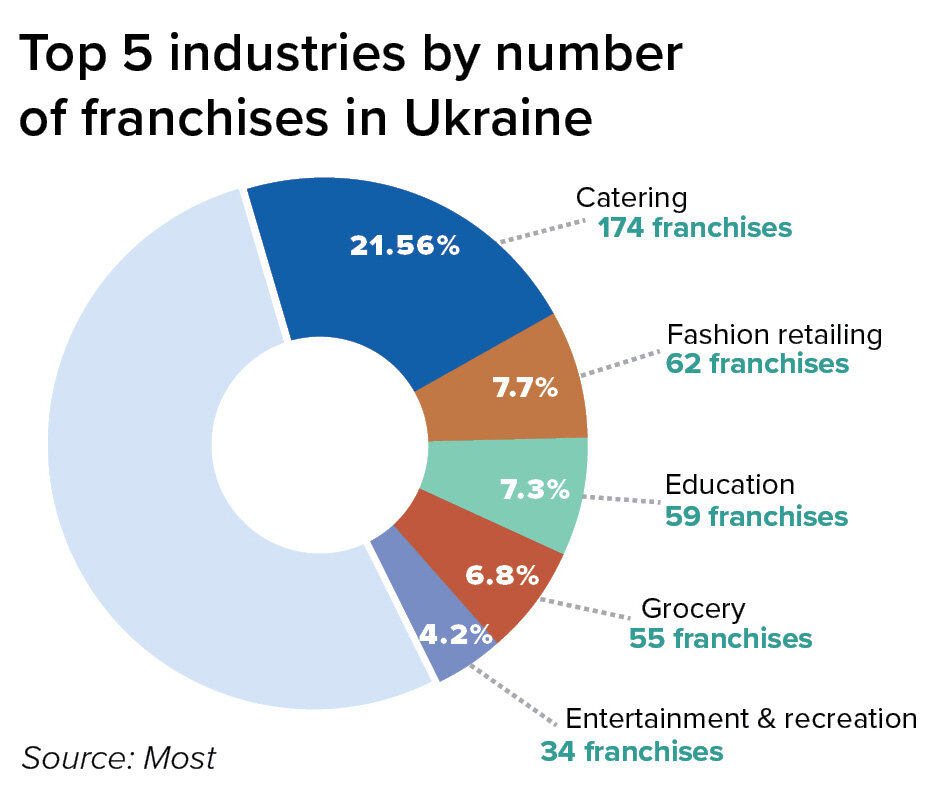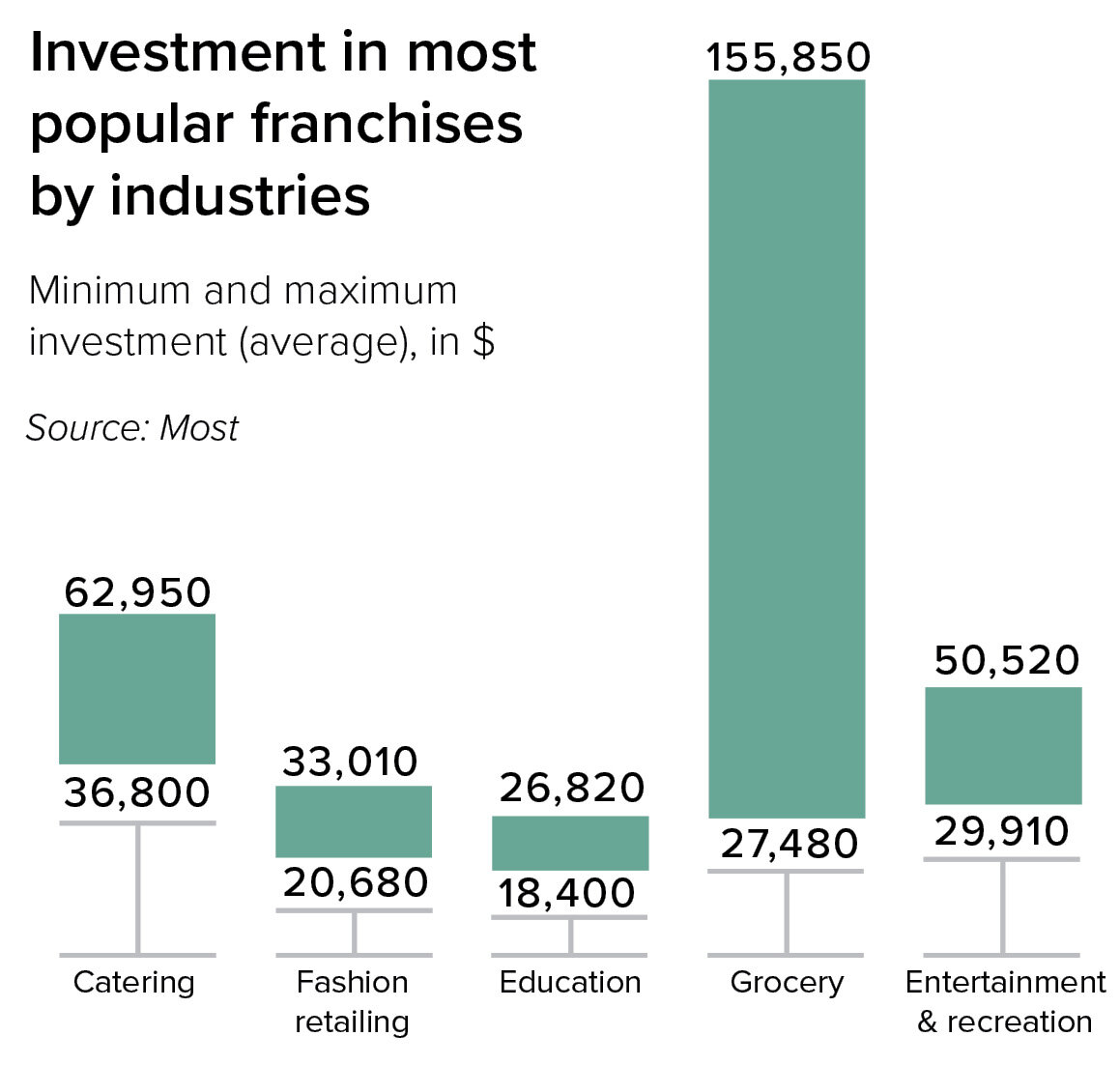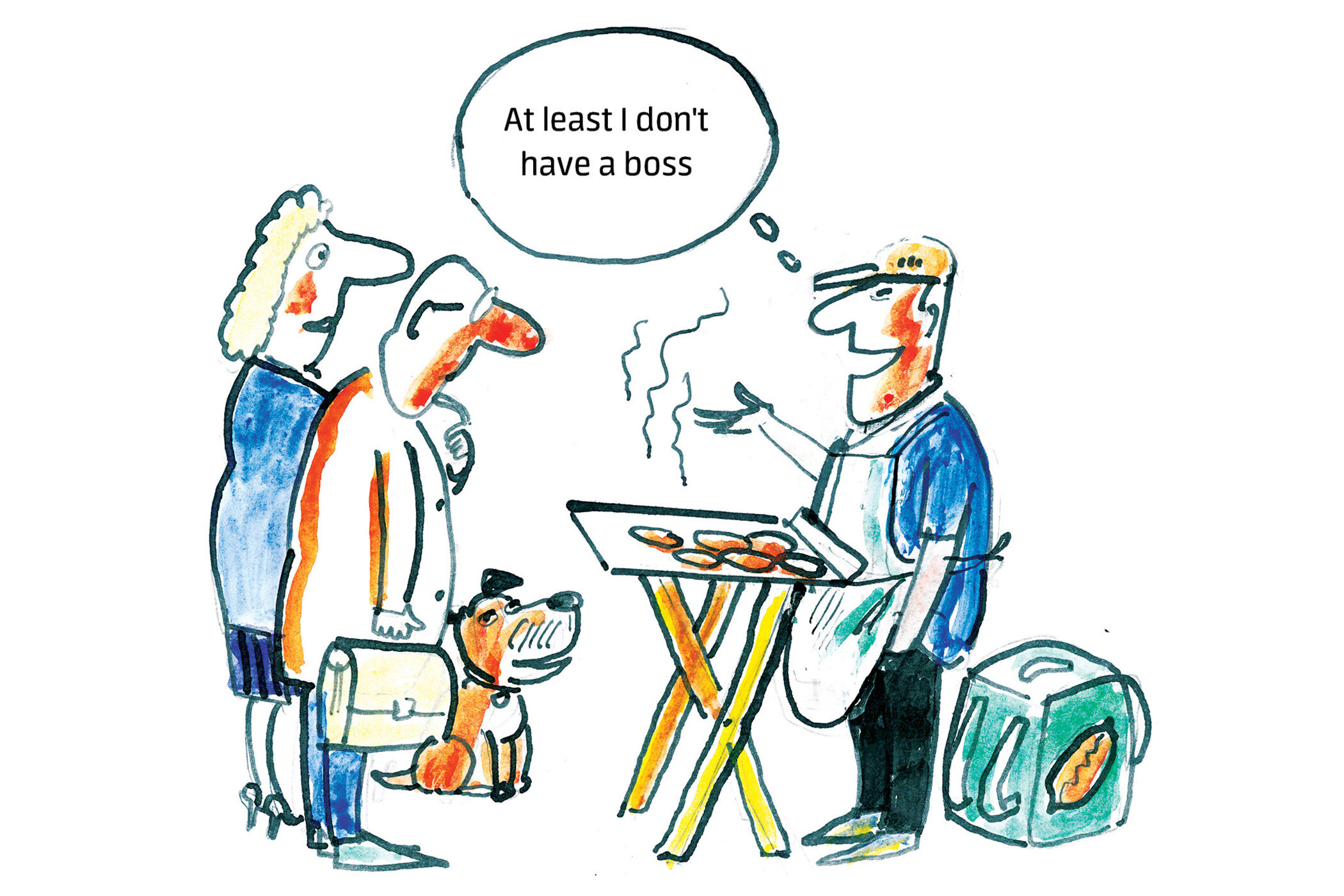To open a franchise of e-commerce giant Rozetka, tech specialist Roman Pasechniy invested nearly $23,800. He rented a 63-square-meter office in Kyiv’s Troieshchyna neighborhood and, within six weeks, turned it into one of Rozetka’s first pick-up points. According to Rozetka, his franchise will bring over $1,270 in net profit every month.
Pasechniy knew from the beginning that his franchise won’t make a fortune — Rozetka only pays him $0.7 for every order delivered to a customer. Still, Pasechniy thinks it’s a good deal: When the investment pays off, he could open another department and earn more.
- View the freshest war in ukraine update in the Kyiv Post’s daily news pieces that came out today.
- Find the latest Ukraine news published as of today.
JOIN US ON TELEGRAM
Follow our coverage of the war on the @Kyivpost_official.
Apart from Rozetka, over 800 local companies sell franchises in Ukraine and abroad, according to Consulting Company MOST. For businesses, franchising is the easiest way to expand, attract new clients and generate profit.
Ukrainians, in turn, want to invest in franchises because it is safer than starting a business from scratch. Even aspiring entrepreneurs with no experience in business can buy a franchise because everything — logistics, services and products — is already tailored for them.
“The biggest businesses in the world have their franchises — it is the fastest and the cheapest way to grow a company,” said Roman Kirilovich, owner of Franch, a company that created franchises for popular firms like Rozetka, Nova Poshta, MHP and Lviv Croissants.
Emerging market
Unlike the U.S., where giants like McDonald’s, KFC and Burger King have been selling their franchises for decades, the Ukrainian franchising market remains untamed.
Up to 10% of small local businesses work as franchises, compared to nearly 80% in the U.S. and 70% in Europe, according to Kirilovich.
Franchising is the most popular in the food industry with bistros like Frans.ua, Lviv Croissants, Aroma Kava and FreshLine sprawling across the country. The scope of investments in these franchises ranges from $36,800 to $63,000, depending on location and the size of the building.
The demand for franchises in the food business has decreased during the pandemic, but franchises in security industry, fashion retail and medicine are gaining momentum, said Myroslava Kozacuk, cofounder of Franchise Group that launched franchises for security company Sheriff, beauty salon G. Bar and bistro chain Frans.ua.
Ukrainian franchises are usually popular among small businesses ready to invest up to $30,000 and earn on average $1,300 in net profit a month.
Big businesses, in turn, usually invest in foreign franchises like KFC or Domino’s because these companies are expensive and the requirements for entrepreneurs are higher.
“It is very difficult to bring a foreign franchise to Ukraine. Businesses have to prove first that Ukraine is a reliable market that can bring profit,” Kirilovich said.
Franchising Wild West
Although franchising is a popular business, Ukraine remains the Wild West for it because there are no laws that regulate the market. Even estimates of its size are approximate because franchises pop up across Ukraine all the time and no one keeps track of them, according to Kirilovich.
Experts said that this lack of regulation is good for franchising. It allows businesses to resolve conflicts without courts and opens the market to everyone.
Entrepreneur Dmytro Borysov, owner of the Gastrofamily restaurant chain that includes popular eateries like Chicken Kyiv, Bilyy Nalyv, Mushlya and Dogz and Burgerz, told the Kyiv Post that many owners of his franchises hadn’t worked in the restaurant business before but wanted to try.
One of them, Anton Zarichnuk, opened Bilyy Nalyv in Vinnytsa, the city of 370,000 people 268 kilometers southwest of Kyiv, when he was only 19 and studied at the local university. Zarichnuk’s parents helped him with investments but it was his “adventurous idea” to buy a franchise.
Bilyy Nalyv is Borysov’s most popular franchise because it is cheaper than big restaurants and doesn’t take much space — nearly 50 square meters. The investments in the franchise pay off in nearly 12 months or even earlier, depending on the location. First Bilyy Nalyv on Kyiv’s central Khreshchatyk Street, for example, returned investments in just 54 days, Borysov said.
A franchise of a small cafe like Bilyy Nalyv can cost on average $30,000. The comparatively low barrier for entry doesn’t mean that profiting on a franchise is easy. By investing in one franchise, local entrepreneurs buy themselves independence and work, experts said, but to earn big money, they have to invest in more locations.
Building empires
It is a common practice for entrepreneurs who started with one franchise to grow their business, according to Andriy Khudo, co-owner of the restaurant chain Fest Local that, among others, includes eateries like Rebernia, Lviv Handmade Chocolate, Piana Vyshnia and Beer Theater Pravda. Khudo has 125 restaurants across Ukraine, nearly 60 of them work as franchises.
“If businesses buy several franchises, it means that a franchise is good,” Kozacuk said. According to her, the more franchises the company has, the higher its value.
Local owners of franchises know the needs of their customers, therefore help businesses to thrive in local markets, said Maxim Melezhik, head of franchising at Ukraine’s parcel delivery firm Nova Poshta.
Nova Poshta has over 8,000 postal offices — 6,500 of them operate as franchises in towns and villages. The company works with over 700 partners. Opening a Nova Poshta office in a village can cost only $3,000.
Entrepreneur Oleksandr Granovsky, who now owns 29 Nova Poshta offices in Kyiv Oblast, most of them in villages, usually returns his investments in 12–18 months. According to Granovsky, his business has opportunities to grow because postal services in villages are in demand.
“I see how local business evolves as people are gaining access to new customers across the country and even abroad” with the help of Nova Poshta’s delivery services, he said.
Selling abroad
Nearly 40 Ukrainian businesses have their franchises abroad, usually in Eastern and Western Europe. Ukrainian franchises are good enough to compete even with businesses in the U.S., Kozacuk said.
Companies that work on foreign markets have more responsibilities and liabilities, according to Kirilovich. They also need a reliable partner to run their company in another country.
“There are many difficulties (of opening a franchise abroad). This business is risky but interesting,” said Iryna Pohodina. She owns Ukraine-founded hairdresser Express Haircut that has 130 salons in five countries, 100 of them are franchises.
The initial fee to open an Express Haircut in Ukraine is $1,000, in Russia and Kazakhstan — $3,000, and in Europe — $5,000. The total investment in its franchise in Europe is nearly $30,000 and $10,000 in Ukraine. The profit in Europe is higher too: $2,500 compared to $1,200 in Ukraine, according to Pohodina.
Kirilovich pointed out that local businesses enter foreign markets because the initial fees, royalties and investments there are higher than in Ukraine.
To open Khudo’s Piana Vyshnia, the store that sells craft cherry brandy, Polish and Romanian entrepreneurs must pay at least $100,000, while in Ukraine it costs nearly $75,000.
Apart from Poland and Romania, Khudo has other franchises in Azerbaijan, Moldova and Latin America. He said that to enter a foreign market, Ukrainian franchises need to have a concept that foreigners will like.
“You can be very cool in Ukraine but your idea can fail abroad,” Khudo said.
It happened with Salateira, Ukraine’s fast-healthy restaurant chain that opened a franchise in Spain and its own restaurant in Dubai but had to close them because the demand for salads there was low and competition high, according to Salateira’s founder Alexander Savilov.
Neighboring Belarus has fewer competitors, thus Savilov’s business there has taken off and brings profit. Now he has four restaurants in Belarus, the fifth will open soon. All of them are owned by one local entrepreneur.
Kirilovich said that it is easier for local franchises to work in the service sector abroad because the demand for services is higher.
The Ukrainian G. Bar has franchises in Poland, Belarus, Georgia, Estonia, Kazakhstan, Russia, Cyprus and even the U. S. The initial fee for its franchise is $15,000, the investment in one location starts from $50,000 in Ukraine and $70,000 in Europe.
Overcoming difficulties
Franchising is not always a win-win for a business and the owner of a franchise.
People who have never worked in business do not understand what franchising is and how it works, Kirilovich said. “When you buy a franchise, you also buy its rules,” he said.
Some franchises do not follow them: refuse to pay royalties or violate corporate standards. Some franchises simply do not take off.
“You can’t just replicate one successful restaurant in another city. In franchising business, everything — from technology to business processes — must be adapted for a new market,” Borysov said.
Ukrainian entrepreneurs agree that running a business under the name of a famous company can be hard but say that it is worth a try.
“I am happy that I decided to start a franchise business. After working in the tech industry, I had to change my mindset from the position of an employee to the position of an entrepreneur,” Pasechniy said. ·
You can also highlight the text and press Ctrl + Enter












